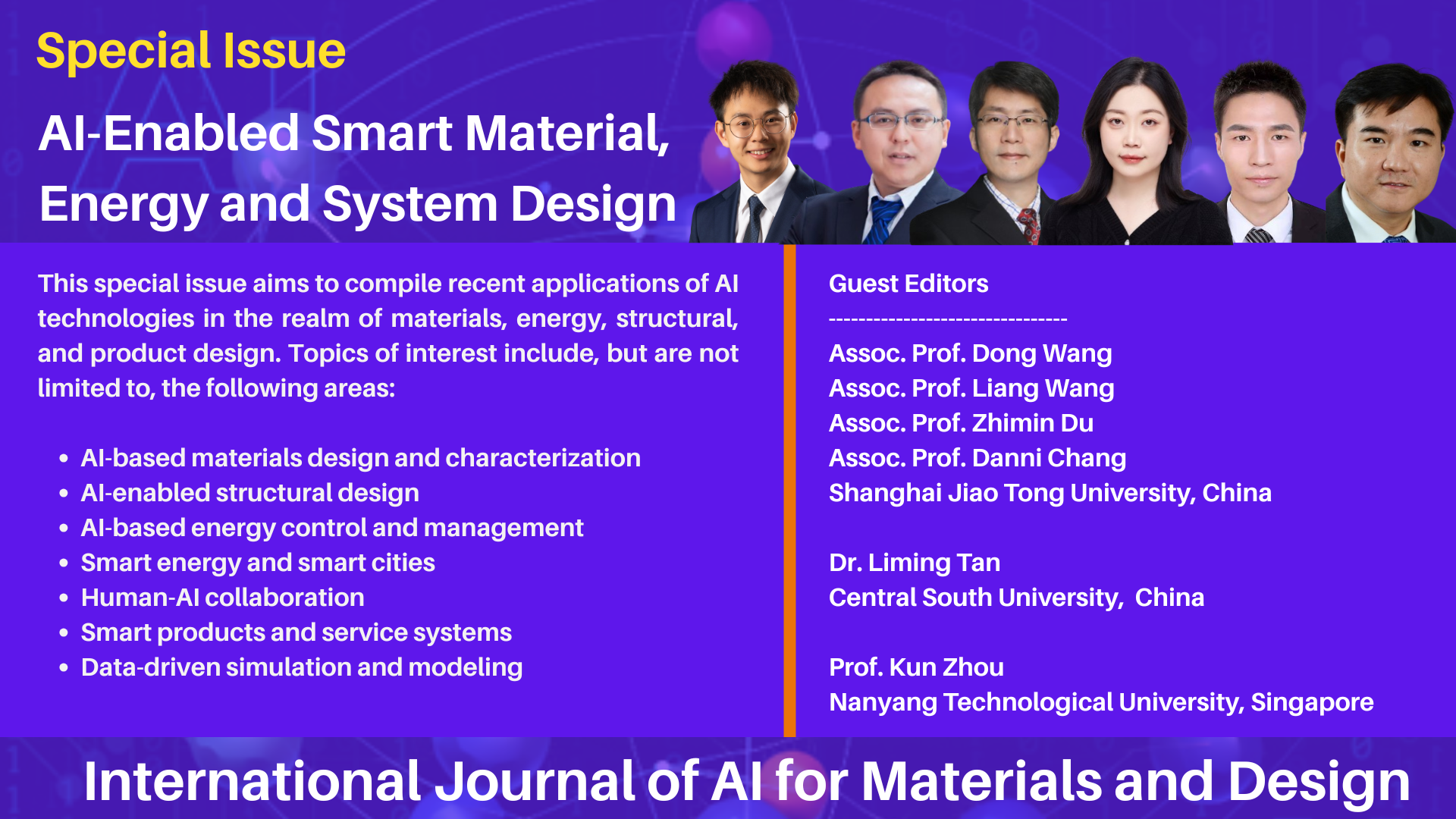
The fields of material, energy and structural design have experienced rapid advancements in recent years. The infusion of artificial intelligence (AI) into material, energy and structural design represents a paradigm shift in how materials, energy and structures are conceived, characterized, and modeled, which offers novel methodologies for understanding, predicting, and optimizing material properties, structural designs, energy saving and carbon emission reducing. These core advancements are further integrated into smart systems, where AI plays a pivotal role in human-AI collaboration and the development of smart products and service systems. This special issue aims to compile recent applications of AI technologies in the realm of materials, energy, structural, and product design. Topics of interest include, but are not limited to, the following areas:
- AI-based materials design and characterization
- AI-enabled structural design
- AI-based energy control and management
- Smart energy and smart cities
- Human-AI collaboration
- Smart products and service systems
- Data-driven simulation and modeling







